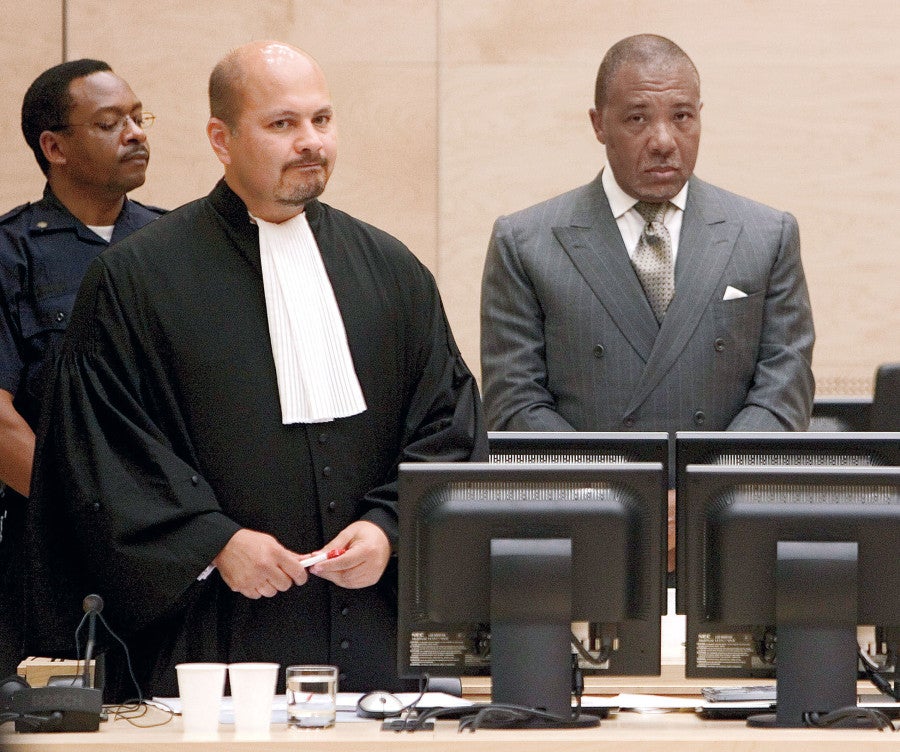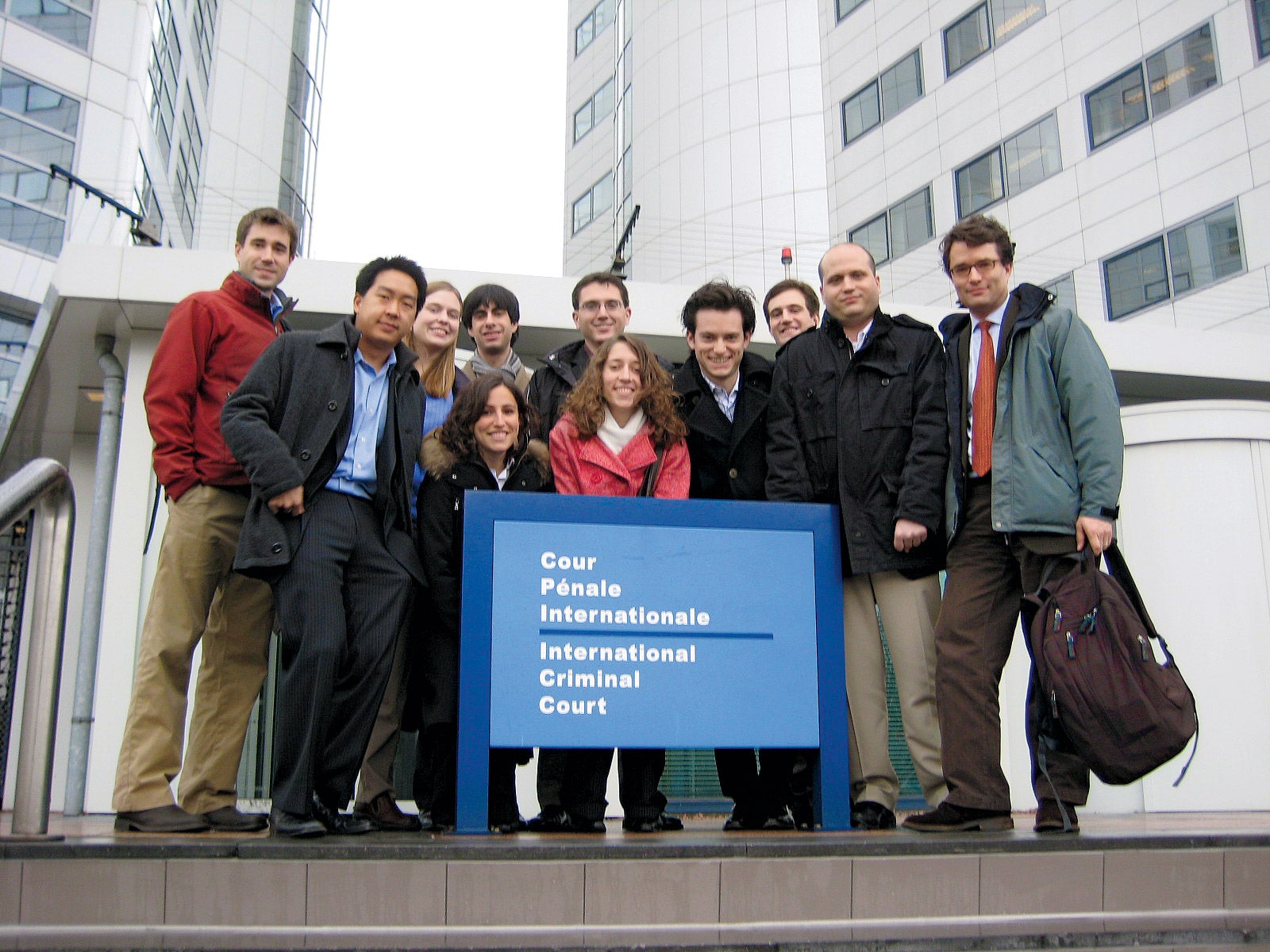For a handful of students, the unreal becomes suddenly real

This January, when the trial of former Liberian President Charles Taylor resumed in The Hague, much of the world was watching. So were 11 Harvard Law students—from about 20 feet away.
In preparation for the War Crimes Prosecution Workshop that he taught this spring, Assistant Clinical Professor Alex Whiting took the students enrolled in the class for an up-close look at the institutions they would be working with: the International Criminal Court, the Special Court for Sierra Leone (which is trying Taylor at the ICC) and the International Criminal Tribunal for the former Yugoslavia.
Albert Chang ’09 says it was a surreal experience to see Taylor—charged with murder, rape and sexual enslavement, among other crimes—walk into the courtroom, and then look with apparent perplexity into the small glassed-in viewing gallery where the students were seated.
“The idea of international criminal justice had seemed very far removed,” says Chang. Not anymore.
Whiting, a former senior trial attorney for the ICTY, arranged for students to sit in on trials and also to meet with judges, prosecutors and defense lawyers—including Taylor’s counsel.
Scott Leslie ’08 says the trip was one of the best experiences he’s had in law school. “We were given free rein to learn from the speakers and ask whatever questions we had on our minds,” he says. “And we met with higher-level officials than I ever expected.” Chief Prosecutor of the International Criminal Court Luis Moreno-Ocampo was among those who sat down with the students and answered their questions—about how he goes about prosecutions, why so many of them are based in Africa, how many he expects to be successful and the future of the court.
Leslie, an editor-in-chief of the International Law Journal, says he knows much has been written about how these tribunals should run. But after seeing the day-to-day work, he was struck by the constraints that prosecutors, defense attorneys and judges face. “I think that gets lost in the literature.”
Whiting, who served as a federal prosecutor before joining the ICTY, says it all comes down to constraints on resources: The international tribunals have no police forces, so witnesses cannot be compelled to come testify. The crimes happen during wartime, at a location distant from the courts, so gathering evidence is difficult, “let alone gathering it in the manner that we are accustomed to in domestic police investigations,” he adds. “The question becomes not, Is this how I expect things to be done, but rather, Is this sufficient and reliable or is it too compromised?”
It was this sort of question that fueled student discussions—on the train back to the hotel, at dinner and back in Cambridge during the spring workshop. In addition to studying relevant international law, students completed projects to help the courts they’d visited in January.
Chang, who hopes for a career “at the intersection of foreign policy and the law,” worked with the State Department to provide legal and logistical support to the various tribunals. Leslie did research for the office of the prosecutor in the ICTY on issues of command responsibility. Although the student work was done long-distance, international criminal justice was no longer an abstraction.
